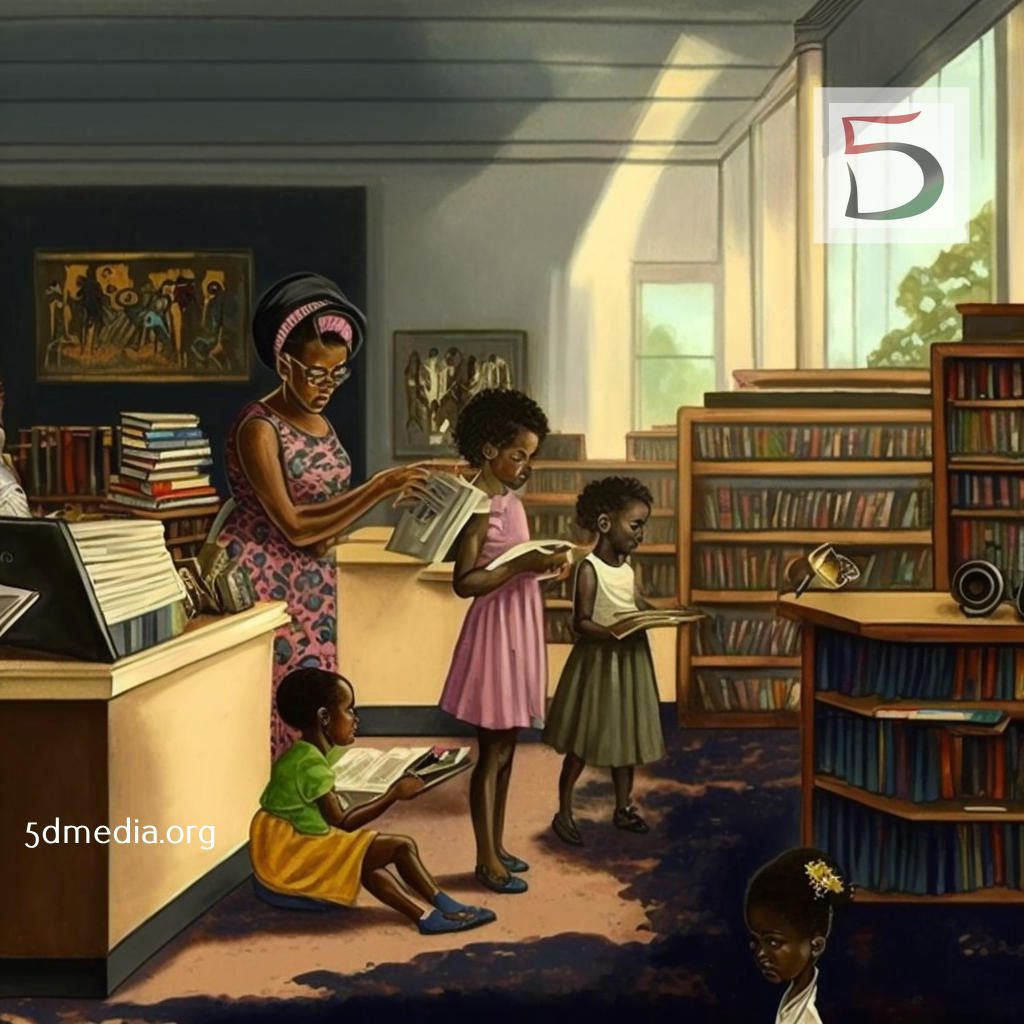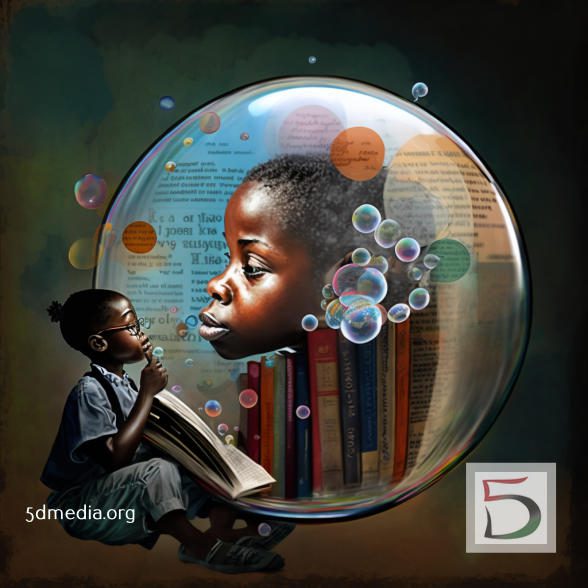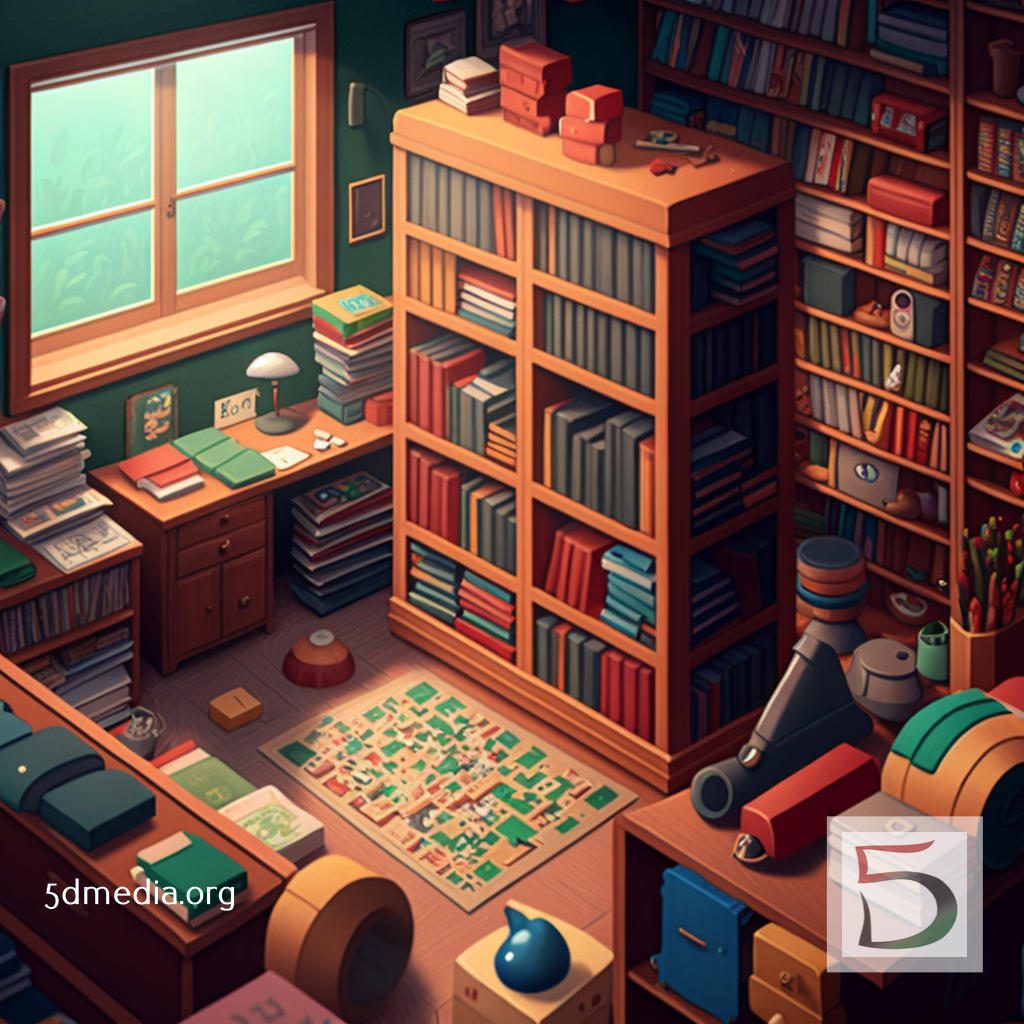African mythology is a vast and varied subject, encompassing many stories and beliefs from across the continent. From the creation myths of West Africa to the epic tales of East African tribes, the stories are as fascinating as they are diverse.
One of the most remarkable features of African mythology is its emphasis on community and interconnectedness of all things. Many stories teach the importance of kindness, respect, and cooperation, emphasizing the value of overcoming challenges together.
The Creation Mythology of the Yoruba People
Take the Yoruba people of Nigeria as an example. According to their creation mythology, the earth was once a primordial ocean and the sky above was a dense fog. In the midst of this chaos, the sky god Olorun, the creator of all things, sent his son Obatala to create the earth. Obatala took a snail shell filled with earth and planted it in the center of the ocean, creating the first land. However, Obatala once drank too much palm wine, and one day he was negligent and created deformed and flawed creatures. When Olorun learned of his son’s mistake and saw the mockery of nature, he decided to create man himself. Olorun created a man and a woman and endowed them with all the attributes of strength, creativity and wisdom, thus setting a precedent for group harmony and respect for all beings.
The Maasai and Their Connection to the Natural World
In East Africa, the Maasai have a similar respect for the natural world. Their creation myth tells of the god Enkai, who created the first humans from a single tree, endowing them with the virtues of intelligence, wisdom, and the ability to communicate. The Maasai also believe in the interconnectedness of all things, emphasizing the importance of the connection between people, animals, and the land. According to their beliefs, humans and animals are equal partners in life, sharing the same purpose and mission.
African Storytelling as a Means of Learning Universal Truths
In addition to mythology, African storytelling also encompasses many genres. Many African stories are simply about everyday life, allowing the audience to consider and empathize with the characters’ struggles and learn universal truths. For example, in rural Mozambique, oral storytelling is very present in public life. The stories told capture emotions, feelings, and can even serve as an archive of life. They are memorized to explain situations, help plan for the future, and heal psychological wounds.
The Threats to African Mythology
However, despite the great value of African mythology, much of it has been lost over time. With the increase of globalization and modernization, many traditional stories and beliefs have been replaced or completely replaced by more modern concepts. The transatlantic slave trade resulted in a significant loss of African mythology. During the slave trade, many people were captured from Africa and brought to the Americas, where an estimated nine million Africans were consumed as slaves between 1450 and 1900. They brought musical instruments with them., language, political system and religious beliefs. As a result, African mythology is strongly suppressed and individual identity dynamics exploited through systems such as slavery.
The interests and needs of African societies had no basis in the European hierarchical ideology that held power over them at the time. Furthermore, the introduction of European colonization in Africa in the late 1800s resulted in further eradication of traditional beliefs and values. Missionary programs impose Christian beliefs while rejecting and disrespecting the African belief system. The discrediting of African spiritual beliefs serves as another layer of emotional abuse against subjugated groups, while their histories and heritage are censored and demeaned.
Reviving Traditional African Knowledge
In modern times, many scholars have worked to restore and revive traditional African knowledge, in the hope of preserving it for future generations. In Senegal, for example, the preservation of this knowledge has contributed to the creation of Museums, which contribute to the nurturing of collective memory and the preservation of cultural vestiges.
The 5D Media method of introducing African Thought
At 5dMedia, we recognize the importance of introducing African thought and mythology to our audiences. African mythology and storytelling are valuable resources that offer insights into traditional beliefs and social values. They also promote a sense of connectedness and community spirit that is often lacking in modern society. Despite facing threats such as colonization, slavery, and the loss of interest in traditional values, scholars continue to preserve and restore this knowledge for future generations.
To honor and celebrate African cultures, 5dMedia has developed a variety of resources that showcase African mythology and storytelling. Our educational games an books feature African characters and stories, and our virtual reality experiences allow users to immerse themselves in African environments and learn about different cultures. Additionally, we have created and curated art prints, audio books and eBooks that feature African authors and their stories. We invite you to check out a few of our resources below to experience the richness and diversity of African thought and storytelling.
5dMedia Resources
-
 Anaya: The Golden Guardian – Limited Edition Framed Portrait$79.99 – $193.00
Anaya: The Golden Guardian – Limited Edition Framed Portrait$79.99 – $193.00 -
 The Secret History of Popular Symbols Used in Everyday Life$9.99
The Secret History of Popular Symbols Used in Everyday Life$9.99 -
 Yaa Asantewaa Resistance Museum Quality Wall poster$15.99 – $29.99
Yaa Asantewaa Resistance Museum Quality Wall poster$15.99 – $29.99 -
 Wangari Maathai Puzzle (120, 252 and 500 Pieces)$25.00 – $35.00
Wangari Maathai Puzzle (120, 252 and 500 Pieces)$25.00 – $35.00 -
 African Queen Mousepad #9$7.99
African Queen Mousepad #9$7.99 -
 African Queen Mousepad #6$7.99
African Queen Mousepad #6$7.99 -
 The Secret History of Popular Symbols Used in Everyday Life: An Interactive Coloring Workbook (case of 78)$506.22
The Secret History of Popular Symbols Used in Everyday Life: An Interactive Coloring Workbook (case of 78)$506.22

Pedaling Towards Freedom: How the Bicycle Catalyzed Women’s Liberation

10 Remarkable Women Who Paved the Way in History
-

The Origins of Women’s History Month and the Importance of Honoring Women’s Accomplishments and Empowerment
-

Lyria’s Luminous Melody








